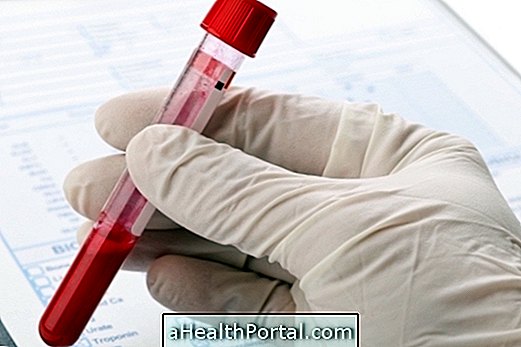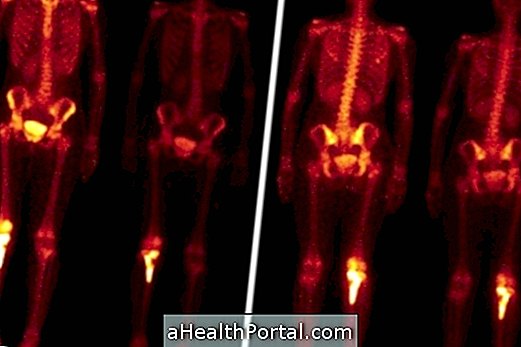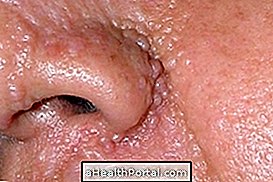Rheumatoid factor is an autoantibody that can be produced in some autoimmune diseases and reacts against IgG, forming immunocomplexes that attack and destroy healthy tissues, such as cartilage of the joints, for example.
Thus, the identification of rheumatoid factor in the blood is important to investigate the presence of autoimmune diseases, such as lupus, rheumatoid arthritis or Sjögren's syndrome, which usually have high values of this protein.

How is the exam done?
The dosage of rheumatoid factor is made from a small blood sample that should be collected in the laboratory after fasting for at least 4 hours.
The collected blood is sent to the laboratory, where the test will be performed to identify the presence of rheumatoid factor. Depending on the laboratory, the rheumatoid factor is identified by the latex or Waaler-Rose test, in which the specific reagent of each test is added to a drop of blood of the patient, then homogenized and after 3 a 5 minutes check for agglutination. If the presence of lumps is verified, the test is positive and new dilutions are necessary to verify the amount of rheumatoid factor present and, thus, the degree of disease.
Since these tests may require more time, the automatic test, known as nephelometry, is more practical in laboratory practice, since it allows several tests to be performed at the same time and dilutions are done automatically, only being informed to the laboratory professional and the physician the result of the examination.
The result is given in securities, a title of up to 1:20 being considered normal. However, results greater than 1:20 do not necessarily indicate rheumatoid arthritis, and the doctor should request further tests.
What may be the changed rheumatoid factor
The rheumatoid factor test is positive when its values are above 1:80, which suggests rheumatoid arthritis, or between 1:20 and 1:80, which may mean the presence of other diseases, such as:
- Lupus erythematosus;
- Sjögren's Syndrome;
- Vasculitis;
- Scleroderma;
- Tuberculosis;
- Mononucleosis;
- Syphilis;
- Malaria;
- Liver problems;
- Infection in the heart;
- Leukemia.
However, as rheumatoid factor can also be altered in healthy people, the doctor may ask for other tests to confirm the presence of any of the diseases that increase the factor. Because the result of this examination is quite complex to interpret, its result should always be evaluated by a rheumatologist. Learn all about Rheumatoid Arthritis.
























